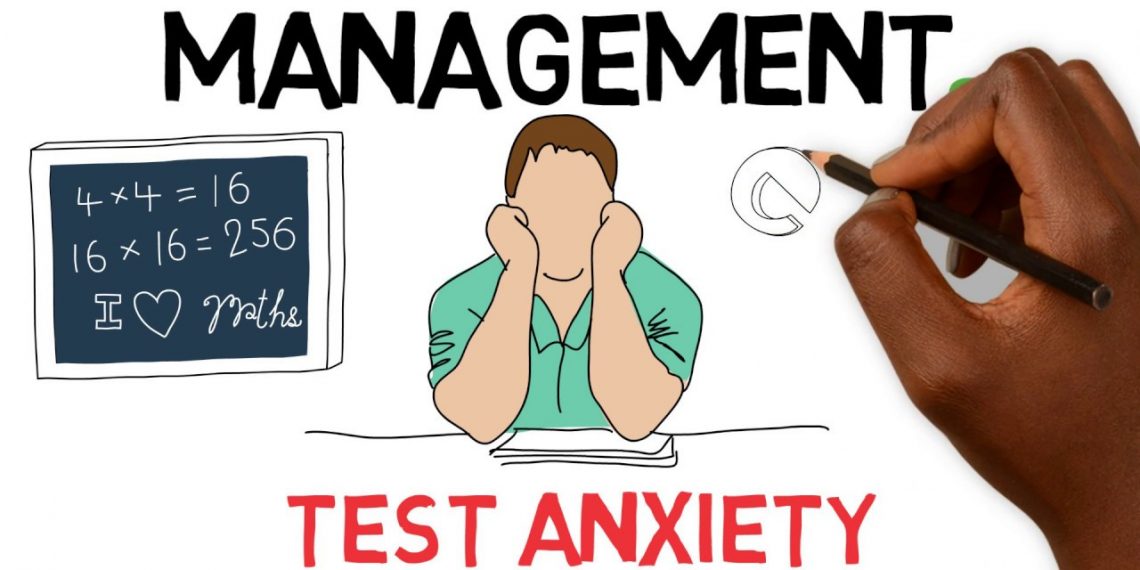Test anxiety is reported by many students, a recurrent occurrence regardless of the kind of student they are and the academic level they are in. One feels unsettling whether it is approaching a definite examination, test, or even a pop quiz that can get the best of one apprehensive feeling which eventually leads to a lack of focus. Though you might face a struggle with test anxiety there are lots of approaches to tackle and handle test anxiety. By taking on these strategies, you can eventually sit calmly for the exams and get the best results like a pro.
Understanding Test Anxiety:
To begin with, and to address the test anxiety root factors, let’s go through the main areas. Test anxiety, in ordinary terms, is a fear of failing, being marked as perfect, being unprepared, or having had similar negative experiences in the past. People face some physiological manifestations while concentrating on exams which include sweating, shaking, a fast but irregular heartbeat and lack of focus. These obstacles can lead to memory loss and intellectual decline which will subsequently affect the performances. Maintaining a balanced diet with the appropriate amounts of carbohydrates, proteins, and fats is crucial.
Tips for Overcoming Test Anxiety:
Preparation is Key:
A suitable technique to reduce test anxiety is of course through an excellent level of preparation. Firstly, it’s a good idea to get a head start, plan a study schedule, and partition the matter into sufficient terms. Revise class notes, textbooks, and teacher-recommended supplementary materials to be used as sources of information. By just getting the content, you will feel much more confident and reduce your anxiety level on class or test day.
Practice Relaxation Techniques:
Along with your study program make sure to use different techniques of relaxation, such as deep breathing and progressive muscle relaxation, to keep your mind and body calm. Breathing techniques, noting tensions on a body chart, and mindfulness meditation may be effective techniques to help in the management of anxiety. By consistently practicing these skills, especially before the exam, one can gradually improve resilience to stress and get into better coping shape.
Positive Self-Talk:
Track the lies inside your head and try to change them into positive thoughts related to the upcoming test. Instead of having negative thoughts, which will make you think even more that you will fail, replace them with positive ones. For example, “I am prepared, I can do this.” Cultivating this like this can make you feel less anxious and confident about yourself.
Maintain a Healthy Lifestyle:
Premature yourself with self-care in the early stages. Aim for a healthy sleep pattern, eat a balanced diet, and move enough to help you feel fitter overall. Strive to eliminate caffeine and sugar intake beyond their just needed amount as they can elevate symptoms of anxiety. Natural healthcare takes care of your body which eventually provides better brain function and makes you feel ready to fight every academic challenge by being more resilient.
Develop Test-Taking Strategies:
Get familiar with the exam format and have a proper plan of taking the test. Prepare yourself to answer test questions by using sample questions under a strict time limit that will give you the feel of being in a real testing environment. Develop those fully. The test may be finished more quickly by skimming through it first, answering the easy questions first, and planning the time wisely. Through having a game plan in your action, you can be ‘assured’ of anxiety when in the examination.
Visualize Success:
Embrace visualization as part of your mind exercises to mentalise success. Pretend that your mind’s eye is open and imagine yourself entering the exam room cool and collected. Imagine you’re taking the test with perfect answers and without getting distracted anywhere. Through envisaging the good endings, your mind will be trained to navigate the obstacle unreservedly with a sense of triumph.
Seek Support:
If you find yourself anxious and worried, it helps you to seek out for support. Try talking to your teachers, academic counsellors if you are in college or a counsellor about your concerns. They can be a great outlet through which students can get the help and assistance they need to overcome test anxiety. Furthermore, such a bond with folks who deal with similar experiences can be therapeutic and uplighting.
Practice Mindfulness:
Be mindful and tame the stress by being aware of your surroundings, including the moment you are in now, and integrating the mindfulness practices into your daily routine. Apart from study sessions, do mindfulness activities like mindful leisure or mindful walking to restore and refocus. Thus, you can avoid overthinking about the future and, instead, maximize the figures of the moment here.
Conclusion:
Test anxiety is one of the most common barriers that many students encounter, but this, however, is not a reason for academic failure. These measures are the main instruments to do this successfully, and they will help you overcome test anxiety and go through exams with confidence. Be aware that overcoming the fears of test-taking is not a simple task to be done immediately. It needs time, patience, and also self-acceptance. No doubt it will require great dedication and an appropriate reflection to overcome moderating anxiety and become a rock star in studies.




